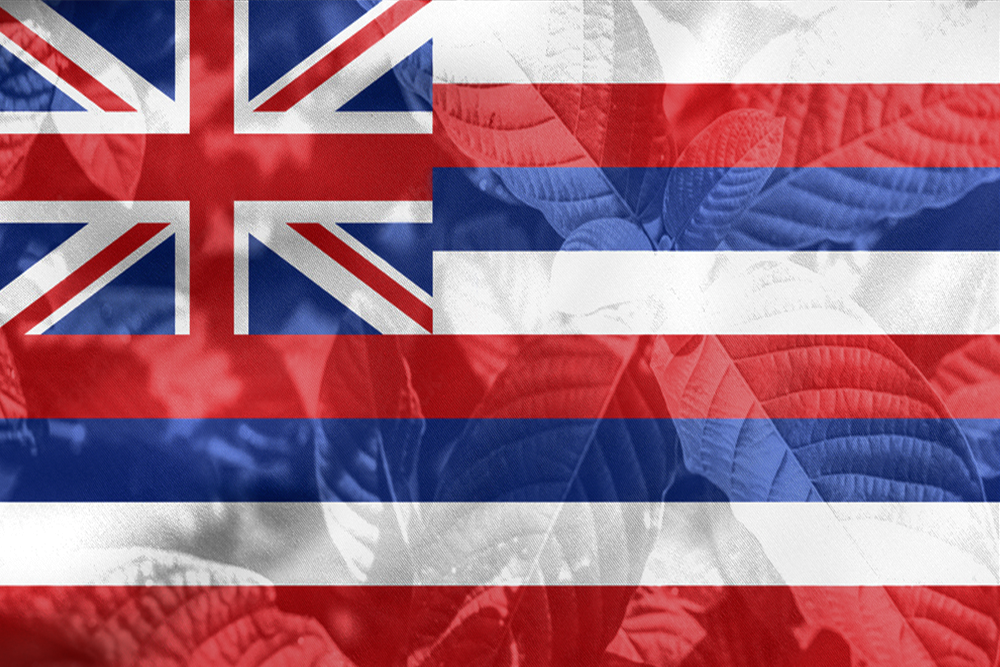
Kratom is legal throughout the vast majority of the United States. What’s more, new laws are being passed to protect kratom users and the therapeutic kratom products they enjoy throughout the US. But that isn’t true everywhere. For example, is kratom legal in Hawaii?
The short answer: Yes, kratom is 100% legal in Hawaii. In fact, Hawaii kratom is completely legal throughout the state, with no local restrictions on its sale or use currently in place.
That said, Hawaii has toyed with the idea of more actively regulating kratom — but no such experiments have yet passed. There aren’t any pending kratom laws for 2023 in Hawaii, but it always pays to be knowledgeable and attentive to keep kratom safe and legal in your state.
Kratom Legality in Hawaii
Kratom is legal throughout the entirety of Hawaii. In fact, Hawaii has not instituted any kratom regulations whatsoever at this time, making it one of the most tolerant kratom states — but also one that does not require testing for purity, safety, or other user-friendly measures.
Hawaii has occasionally considered passing kratom regulations. However, these have generally been aimed toward safety regulations rather than restrictions or outright bans.
Hawaii’s Past Kratom Legislation Efforts
Kratom is and always has been legal in Hawaii. However, several past bills were introduced that sought to impose various restrictions on kratom’s sale or use. The most notable of these efforts was a failed piece of 2020 legislation known as SB3064.
Hawaii’s Senate Bill 3064 (SB3064), which was introduced in 2020, aimed to ban kratom by scheduling it as a Schedule V drug. The bill’s language described kratom as a “detrimental drug”, mischaracterizing its alkaloids as hallucinogenic substances, and otherwise demonizing kratom without the backing of research or accurate information.
Luckily, SB3064 failed to pass, and as such, kratom remains legal throughout all of Hawaii. Other less severe pieces of legislation have also been introduced and debated, though none have as yet passed.
Which States Have Banned Kratom?
Kratom is legal throughout most of Florida, but not all states are the same. Currently, the states that have outright banned kratom are as follows:
- Alabama classified kratom’s primary alkaloids, mitragynine, and 7-hydroxy-mitragynine, as Schedule I narcotics in May 2016. This likens kratom to substances like ecstasy and heroin, an unjust misclassification.
- Arkansas banned kratom in February of 2016. In 2017, state medical examiners incorrectly stated that kratom’s alkaloids are derived from opium. It is unlikely we’ll see the Arkansas kratom ban lifted soon.
- Indiana outlawed kratom in 2014 but incorrectly listed the botanical as a synthetic cannabinoid. The legislature later amended their language, classifying kratom as a hallucinogenic substance, another misclassification.
- Rhode Island banned kratom’s alkaloids in 2017. Due to public outcry in other states, Rhode Island’s ban occurred in secret, confusing both residents and law officials.
- Vermont banned kratom’s alkaloids in 2016, but were improperly classified as “synthetic drugs.” In January of 2020, lawmakers filed a bill to decriminalize kratom products, but kratom’s future is still uncertain in the state.
- Wisconsin banned kratom’s alkaloids in 2014, incorrectly associating kratom with both synthetic cannabinoids and hallucinogenic drugs. In 2019, lawmakers held informational meetings with the American Kratom Association (AKA), a step in the right direction.
In addition to these full-ban states, some states have county- or city-level bans despite kratom being legal throughout the state at large. These states include California, Illinois, Florida, and New Hampshire.
For the rest of the United States, kratom remains a safe, legal, and accessible option for users to buy kratom at their convenience and to take control of their health and wellness.

